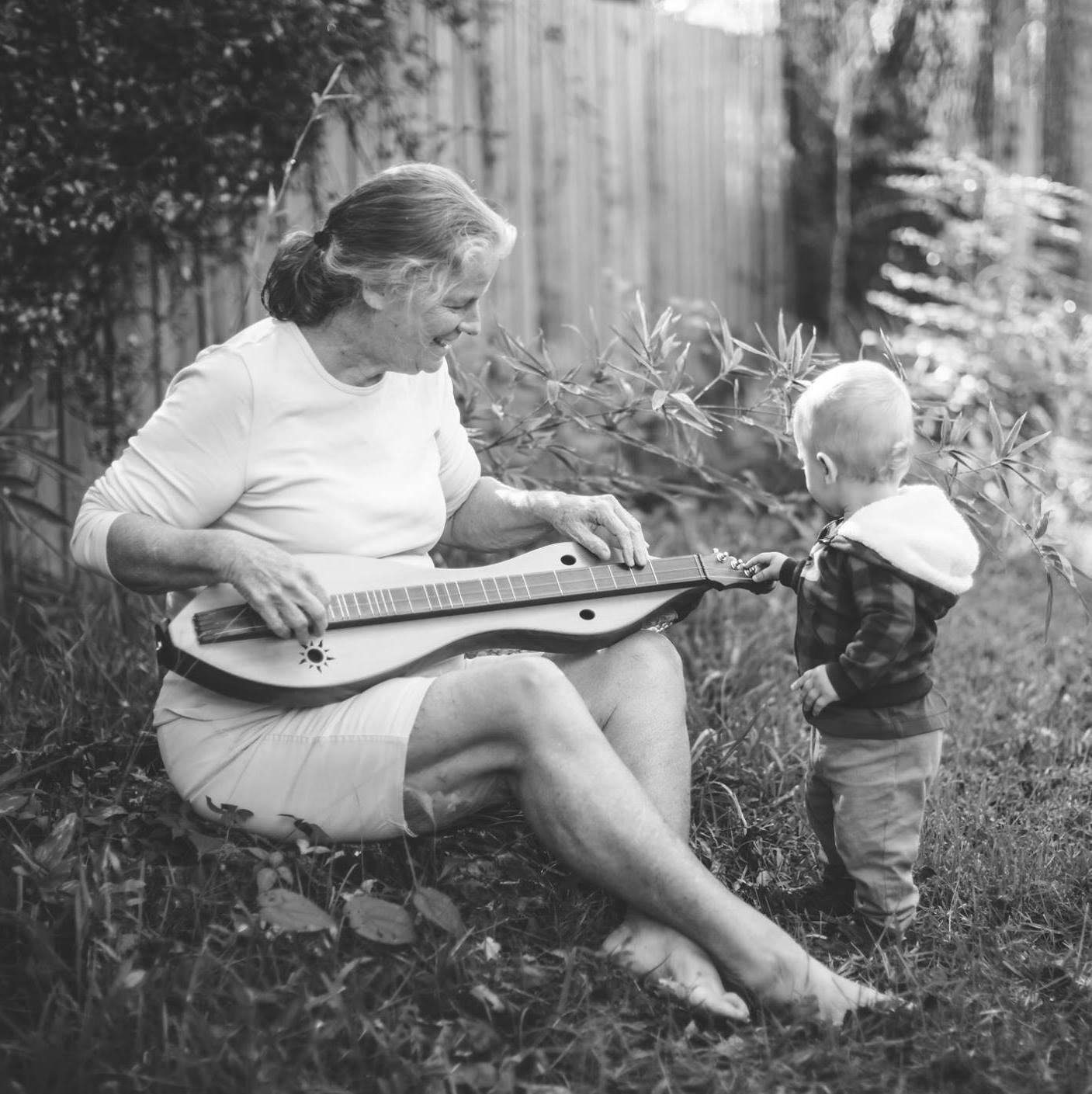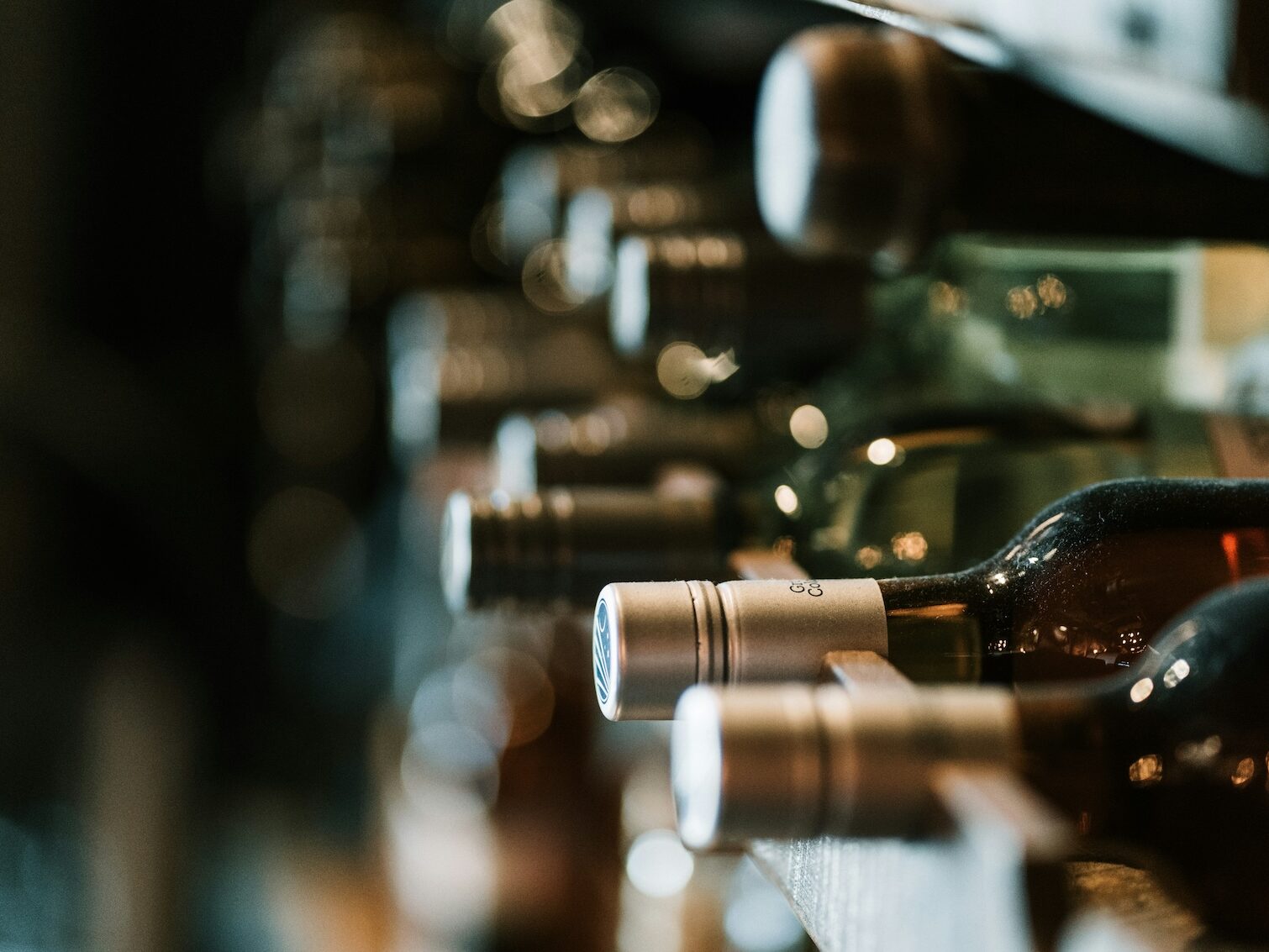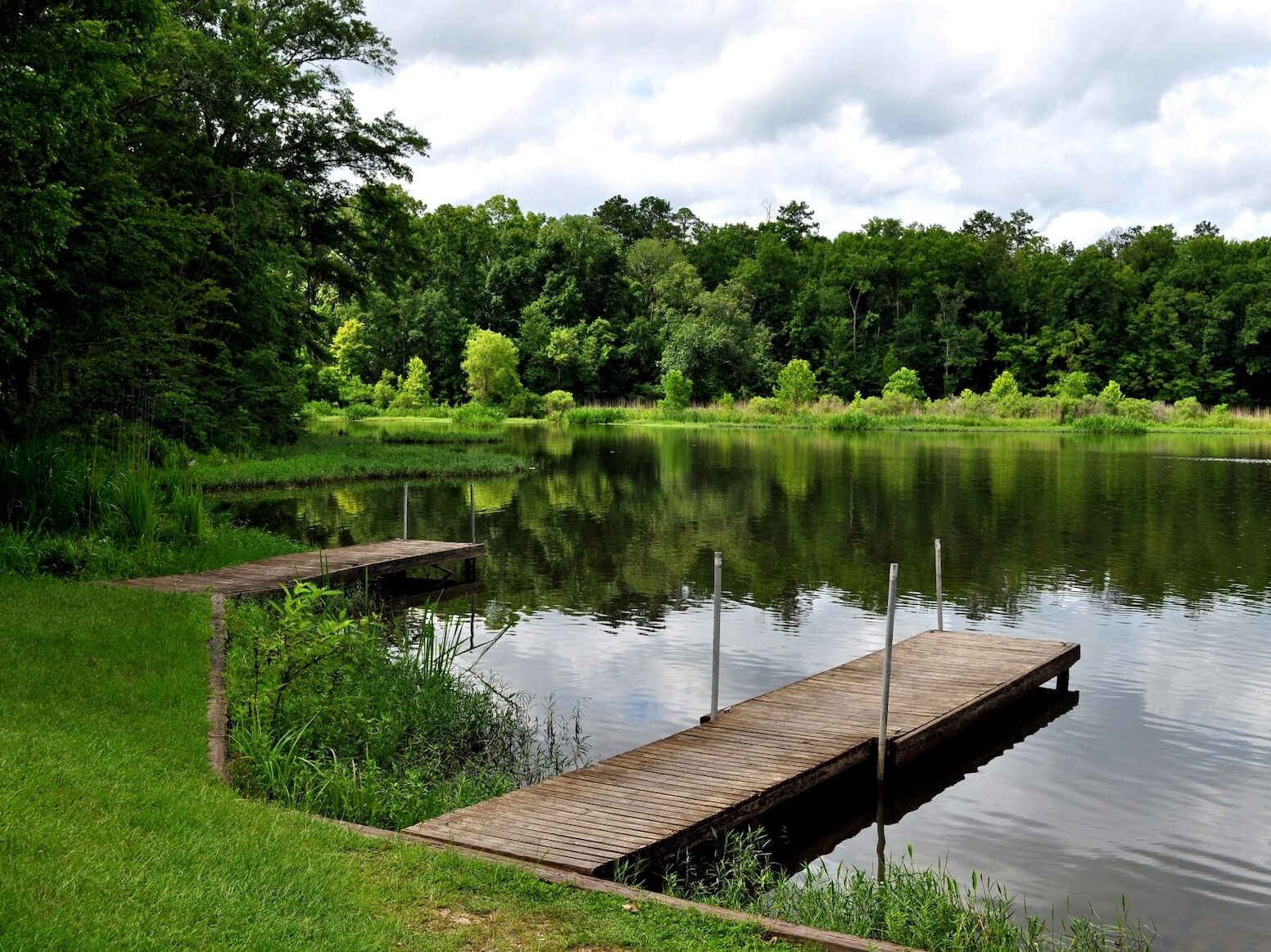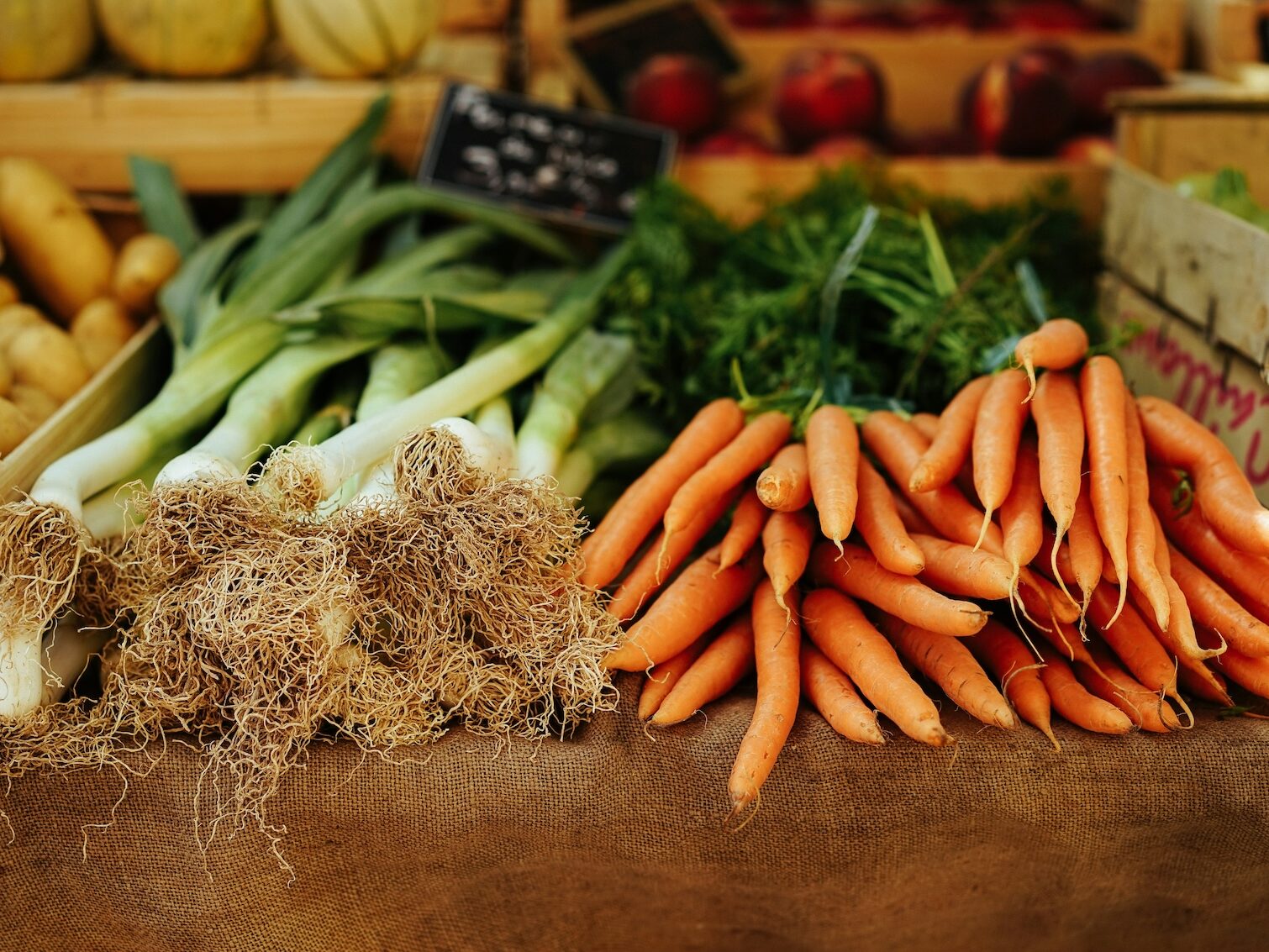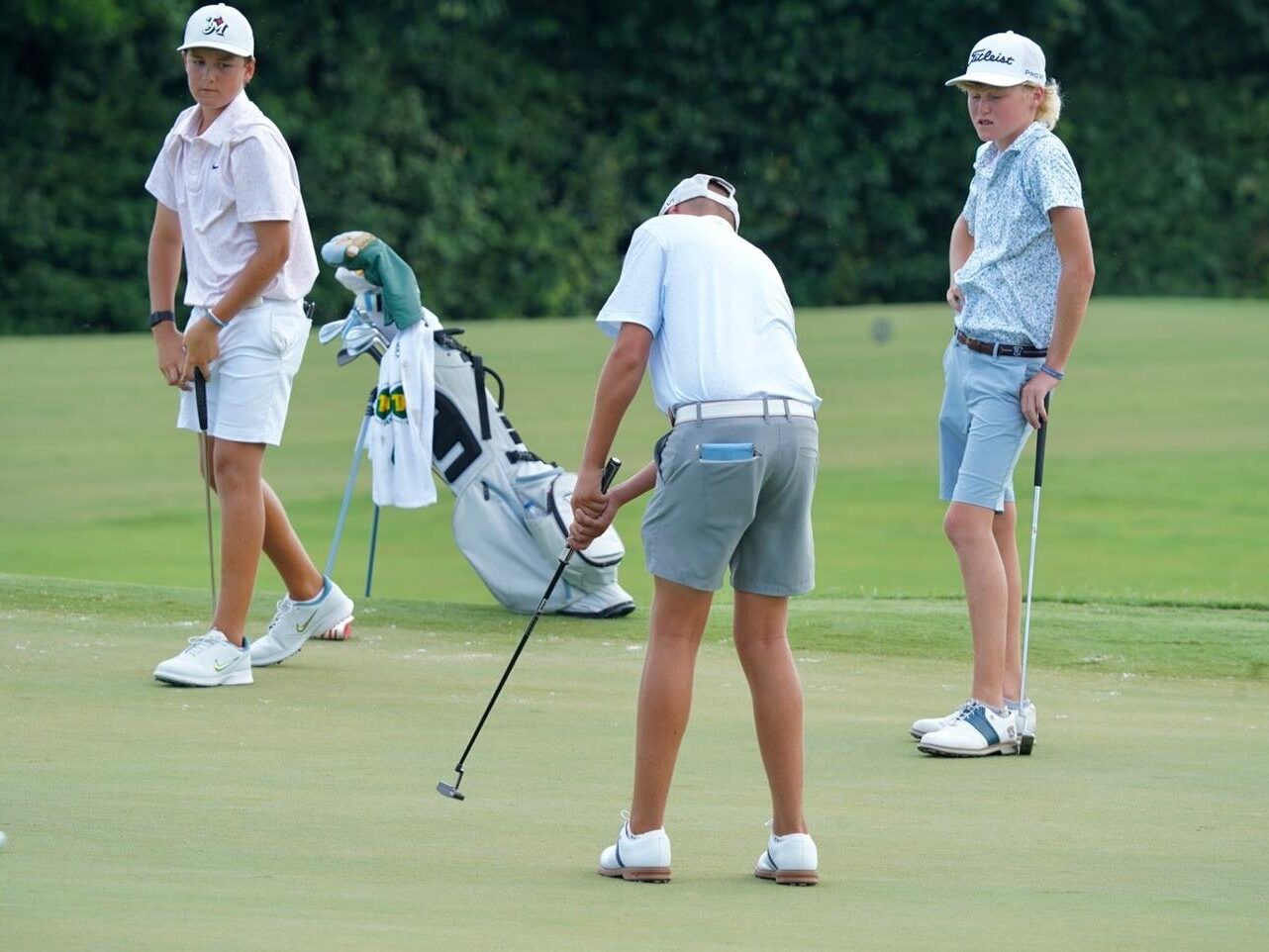Through thick pine forests dotted with early spring daffodils, I made my way up Highway 195 this weekend to the Alabama Folk School at Camp McDowell.
The school had its start in 2007, but the current director, Caitlin Lollar, took over in early 2020. It’s clear from the enthusiasm in her voice that she cares deeply for the school and its mission. “The Folk School was founded as a way to enrich lives and reconnect people to music, art, and each other,” Lollar says. “It extends beyond the crafts and musical traditions themselves, to the sense of connection and community formed when we gather to make things together.”
The school seeks to preserve Alabama’s cultural heritage through the teaching of traditional crafts and folk arts at six weekend workshops spread over the course of the year. 2024’s first workshop, From Scratch, is a weekend designed for true beginners, welcoming participants to come and try their hand at one of nine class offerings—from banjo to mandolin, hand stitch quilting to ceramics.
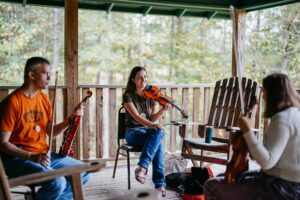
(Alabama Folk School/Facebook)
I arrived at From Scratch with open expectations and an eagerness to learn. I also arrived with a curiosity as to what drew people to the camp; to try your hand at something new as an adult takes a certain measure of vulnerability.
It didn’t take long to find my answer.
After a wine and cheese welcome reception and a hearty dinner, students got started right away with their first class of the weekend. I wandered into beginner fiddle with Amy Alvey, a Berklee music graduate who heard old-time and bluegrass music for the first time in her college years. She quickly made the switch to old-time from classical and hasn’t looked back since.
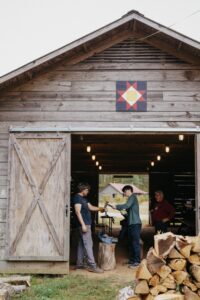
(Alabama Folk School/Facebook)
Alvey encouraged the rest of the group to make some introductions, fiddles poised and ready on their laps. Clyde, from Franklin TN, discovered his violin in his grandparents’ attic nearly 30 years ago and had resolved to finally learn to play. Drew from Hamilton, MS, had a similar story—he begged his grandfather for a fiddle he found in an antique store as a child, and was ready to brush off the dust and give it a try.
Every student’s story varied as to what brought them to the Folk School, but a common thread remained—each had decided that it was time to amass the courage to learn something new. Some seemed to tiptoe to the edge, while others were ready to dive in. But the level of courage didn’t matter—what mattered was that they took the leap, and now they were here, surrounded by others who desired to cultivate the seed of lifelong learning.
And the stories—perhaps they were the second thread that ran through. Every student and instructor offered up unique stories, stories of resolution or hope, stories of what it means to be human. By the end of the short weekend, I had collected so many beautiful little narratives in my mind, wanting to preserve them like spring blooms in a flower press. That is, after all, the mission of the Folk School—to connect us with the kindness, humility, and stories of one another.
Laurie, the mountain dulcimer instructor, had a beautiful laugh like no other and immediately plopped a dulcimer in my lap when I arrived in her class. I soon learned that she had taught elementary children for decades before picking up the dulcimer. Her friend Jean, who was always by her side, had a similar story—having once taught young children in an international area, she wanted to learn something new to remind herself what courage it took for her young students.
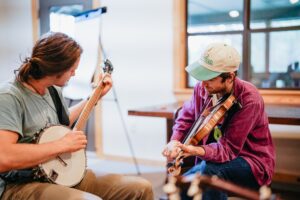
(Alabama Folk School/Facebook)
Bailey, the banjo teacher, belted out “Mountain Dew” while playing along with his newest students and their careful strums. The Appalachian song repertoire included so many names that made me smile or giggle, such as “Nail That Catfish To a Tree” or “Whiskey Before Breakfast.” Bailey, and many of the other musicians, referred to rhythms in “bum diddies” and “boom chucks.” Music at Folk School felt lighter than my polished and buttoned-up piano lessons as a child—more freedom, more movement, and somehow more authentic.
In ceramics class, the instructor Jen noted how students’ demeanor will completely change over the course of a weekend; quiet, studious work soon turns into uproarious laughter in a matter of days. “It’s amazing how working with your hands opens you up to personal connection,” she explained, as she stood in awe of the weekend students’ transformation.
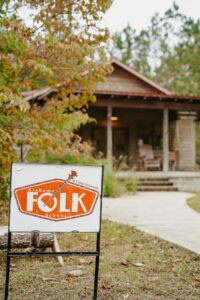
(Alabama Folk School/Facebook)
That afternoon, I wandered over to Phifer Hall where Aaron, the quilting instructor, was arranging pieces of his hand-dyed fabric on a table for his students to use. As he sorted them, I was amazed that such vibrant colors could come from elements he’d foraged—marigold, black walnut, and sumac, to name a few. He explained that each color told a story of its region, its home, and dying fabrics with these elements provides a way for art to reflect one’s homeland.
On the last day, a brisk and sunny morning, a coffee in my hand, I wandered along the Sloan Lake trail and took in the beauty of the weekend. The pines gently swayed when the breeze fell over the water, and in the distance, I could hear a fiddle student bowing the melody of a new song.
The enchantment of such a weekend was in full view before me: the opportunity to learn a new craft, connect with community, and revel in the beauty of nature—not simply living, but thriving; “sucking the marrow out of life,” as Thoreau famously said. It was a weekend of deep connections, thriving cultural enrichment, and genuine camaraderie. I drove home with a full heart and a refreshed spirit.
The Alabama Folk School will host its next retreat, Bluegrass and Gee’s Bend, from May 2nd-5th, and will include bluegrass music workshops, quilting and natural dying, and goat soap making.
Visit their website to learn more about the school’s history, 2024 events, and class offerings.
